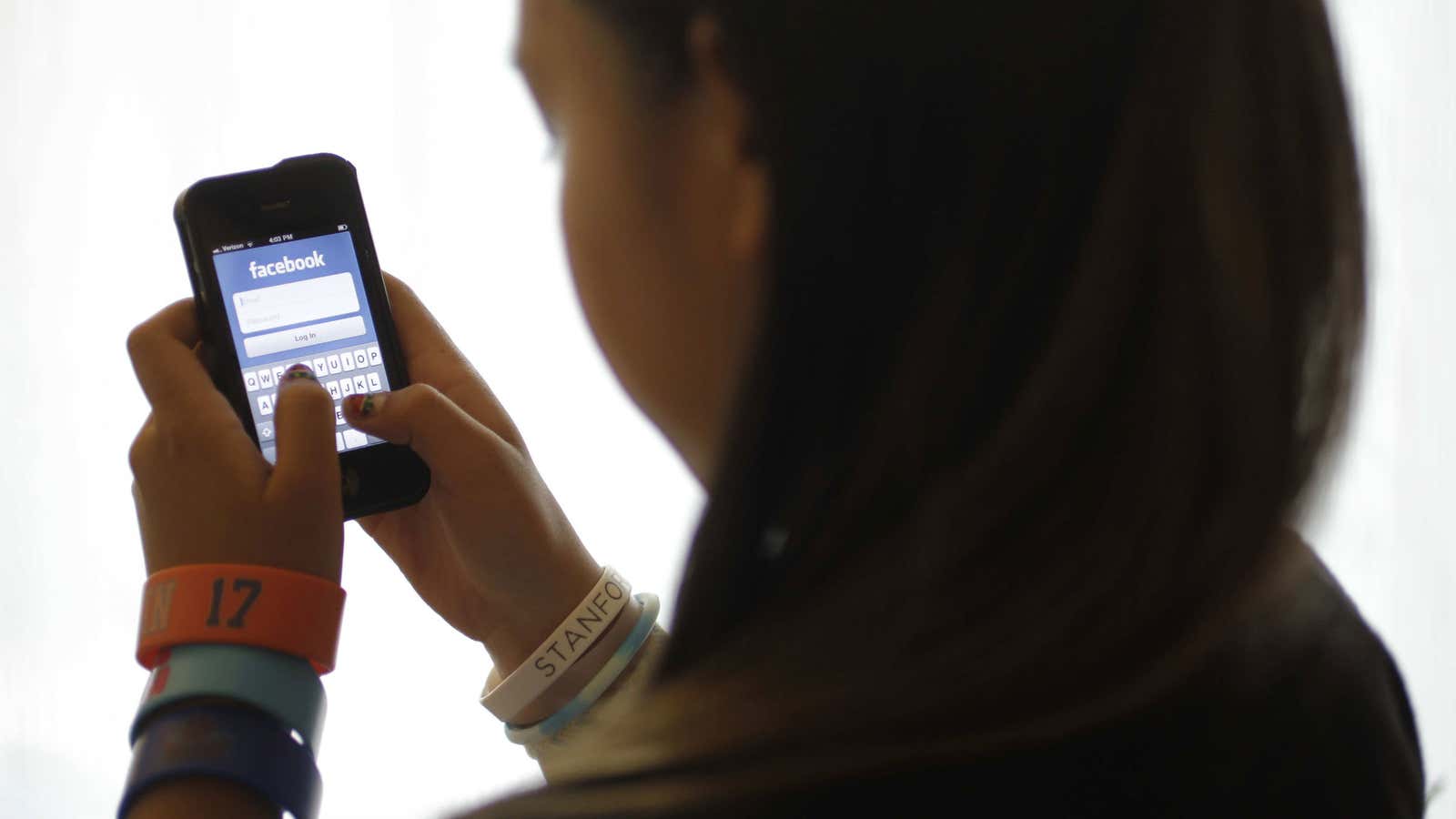Problem: Posting photos on Facebook allows us to present an idealized version of our lives—our dinners well-plated, our friends always smiley. We can also only post the pictures of ourselves in which we look the most beautiful, and untag the ones we don’t like. And this distorts reality.
As a new study published in the International Journal of Eating Disorders notes, “Facebook represents a ubiquitous merging of two social influences linked to risk for developing eating disorders through reinforcement of the thin ideal: media and peers.”
Methodology: Researchers from Florida State University had 960 female college students take an eating attitudes test to determine how disordered their eating was. They also asked the students how much time they spent on Facebook each week. From that sample, they recruited 84 women with an average age of 18 for a second study.
Some of the participants were asked to log in to Facebook and spend 20 minutes on the site. The rest were asked to spend that 20 minutes researching ocelots on Wikipedia, and watching a video of an ocelot on YouTube. “The control condition was designed to match the experimental condition on exposure to text versus images while eliminating any images related to the human body,” the study reads.
Once they were done with their assigned Internet tasks, the participants completed measurements of their current preoccupation with their weight and shape and how much they wanted to exercise. They also took the eating attitudes test, and answered questions about their typical use of Facebook, and whether the 20 minutes they spent on the social network was normal for them.
Results: Both studies found a correlation between time spent on Facebook and higher disordered eating scores, though in the second the relationship was not statistically significant. (The researchers suggest this may be due to the second experiment’s smaller sample size.)
There were certain Facebook behaviors, though, that were significantly associated with disordered eating: “Participants with greater disordered eating endorsed greater importance of receiving comments on their status and photos, and greater importance of receiving “likes” on their status.” They also untagged themselves more often and tended to compare their photos to those of their female friends.
Implications: This study found a “significant but small” association between Facebook use generally and disordered eating. It seems that with Facebook, as with any tool, it depends on how you use it. The young women in this study were at greater risk when they spent more time untagging photos and comparing their photos to others’, “perhaps in order to remove unflattering photographs and minimize opportunities to become the target of downward social comparison.” Similarly, people who posted to Facebook in the hopes of eliciting positive responses were more at risk. Facebook is just one more place where people can be exposed to unrealistic beauty standards.
“Now, women have a constant and active space to engage in social comparison with peers who may simultaneously portray and reinforce the thin ideal,” the study reads.
This post originally appeared at The Atlantic. More from our sister site:
The sad challenge of retiring from ballet
There is no real difference between online espionage and online attack
Why Getty going free is such a big deal, explained in Getty images
